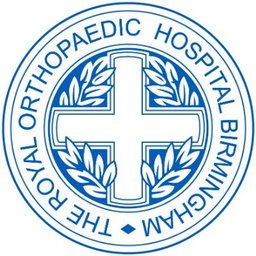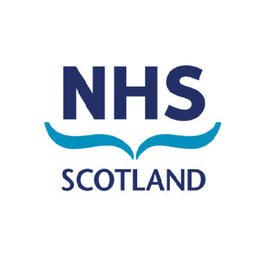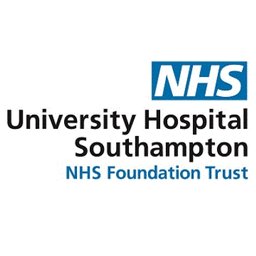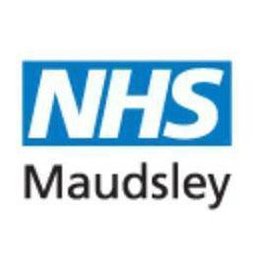Utilising a high degree of autonomy and complex decision making you will triage, assess, and review patients referred to the service either for advice or admission.
Whilst managing a small specialist team you will co-ordinate patient movement throughout the service, ensuring appropriate assessments, investigations and specialist procedures are carried out.
Working collaboratively, you will use audit, research, evidence-based practice, and peer review to develop the service at ROH.
The Royal Orthopaedic Hospital NHS Foundation Trust is one of the largest specialist orthopaedic units in Europe. We offer planned orthopaedic surgery to people locally, nationally and internationally.
Our Trust is a very special hospital; big enough to deliver world class services and small enough to offer exceptional patient and staff experience. We offer a working experience unique in the West Midlands and we're always on the lookout for passionate people to join our award-winning team.
The ROH is an equal opportunities employer. We employ people of difference and are committed to growing an inclusive culture, where difference is celebrated, and people feel able to bring their whole and authentic self to work.
We are a Disability Confident Leader and offer a range of inclusive, family friendly and flexible working arrangements and policies, to support our people in the workplace. Flexible working requests will be considered.
The Trust is committed to the Disability Confident Interview Scheme and will offer an interview to disabled applicants who meet the minimum criteria for a vacancy and consider them on their abilities.
If you have a disability and need any support with your application or require any reasonable adjustments to be implemented please do get in touch with the Recruiting Manager for this position so that the team can support you.
PROFESSIONAL
- Practice in accordance with your respective code of professional conduct and within scope of practice, being responsible and accountable for your decisions, actions, and omissions at this level of practice.
- Demonstrate a critical understanding of your broadened level of responsibility and autonomy and the limits of own competence and professional scope of practice, including when working with complexity, risk, uncertainty, and incomplete information.
- Demonstrate a critical understanding of your broadened level of responsibility and autonomy and the limits of own competence and professional scope of practice, including when working with complexity, risk, uncertainty, and incomplete information.
- Triage patients referred to the revision hip and knee arthroplasty and Bone Infection Service using advanced, expert, critical thinking skills making autonomous clinical decisions regarding patient diagnosis, care, management, and treatment. This includes advanced health assessment, independent prescribing and recognition of appropriate and timely referrals, both internal and external, to ensure safe holistic patient care.
- As an Independent prescriber, initiate drug therapy/medication within the parameters of individual competence, agreed clinical guidelines and in accordance with Trust policy, professional regulatory and national guidance.
- Maintain prescribing competence and participate in regular continuing professional development in relation to the role
- Order and interpret haematological, biochemical, microbiological, radiological and electrocardiograph investigations. Act on results to formulate a diagnosis and treatment plan. Escalate to MDT when beyond scope of practice, in accordance with approved protocols and current clinical guidelines.
- Undertake ward rounds, actively contributing to planning and providing direct clinical care of post-operative patients, identifying any patients who may require further intervention and putting in place appropriate management plans.
- Act as an expert specialist resource for patients, health care professionals and the wider MDT. Provide advice and share information both internally and external to the organisation.
- Act on professional judgement about when to seek help, demonstrating critical reflection on own practice, self-awareness, emotional intelligence, and openness to change.
- Use expertise and decision-making skills to inform clinical reasoning approaches when dealing with differentiated and undifferentiated individual presentations and complex situations, synthesising information from multiple sources to make appropriate, evidence-based judgements and/or diagnoses.
- Act as a clinical role model/advocate for developing and delivering care that is responsive to changing requirements, informed by an understanding of local population health needs, agencies, and networks.
- Evidence the underpinning subject-specific competencies i.e., knowledge, skills, and behaviours relevant to the role setting and scope, and demonstrate application of the capabilities to these, in an approach that is appropriate to the individual role, setting and scope.
- Negotiate an individual scope of practice within legal, ethical, professional, and organisational policies, governance, and procedures, with a focus on managing risk and upholding safety.
- Line Manage the service Clinical Nurse Specialist, ensuring professional development, training needs and sickness reviews are maintained appropriately.
- Pro-actively initiate and develop effective relationships, fostering clarity of roles within teams, to encourage productive working.
- Role model the values of the organisation, demonstrating a person-centred approach to service delivery and development.
- Actively engage in peer review and seek feedback from individuals, families, and colleagues to inform own and others practice, formulating and implementing strategies to act on learning and make improvements.
- Critically apply advanced clinical expertise in appropriate faciliatory ways to provide consultancy across professional and service boundaries, influencing clinical practice to enhance quality, reduce unwarranted variation and promote the sharing and adoption of best practice.
- Demonstrate team leadership, resilience, ability to concentrate for prolonged periods and determination, managing situations that are unfamiliar, complex, or unpredictable and seeking to build confidence in others.
- Continually develop practice in response to changing population health need, engaging in horizon scanning for future developments (e.g., new treatments).
- Demonstrate receptiveness to challenge and preparedness to constructively challenge others, escalating concerns that affect individuals, families, carers, communities, and colleagues’ safety and well-being when necessary.
- Work collaboratively with an appropriate range of multi-agency and inter [1] professional resources, developing, maintaining, and evaluating links to manage risk and issues across organisations and settings.
- Evaluate own practice, and participate in multi-disciplinary service and team evaluation, demonstrating the impact of advanced clinical practice on service function and effectiveness, and quality (i.e., outcomes of care, experience and safety).
- Critically engage in research activity, adhering to good research practice guidance, so that evidence-based strategies are developed and applied to enhance quality, safety, productivity, and value for money.
- Evaluate and audit own clinical practice, selecting and applying valid, reliable methods, then acting on the findings.
- Critically appraise and synthesise the outcome of relevant research, evaluation and audit, using the results to underpin own practice and to inform that of others.
- Take a critical approach to identify gaps in the evidence base and its application to practice, alerting appropriate individuals and organisations to these and how they might be addressed in a safe and pragmatic way.
- Actively identify potential need for further research to strengthen evidence for best practice. This may involve acting as an educator, leader, innovator and contributor to research activity and/or seeking out and applying for research funding.
- Develop and implement robust governance systems and systematic documentation processes, keeping the need for modifications under critical review.
- Disseminate best practice research findings and quality improvement projects through appropriate media and fora (e.g., presentations and peer review research publications).
- Facilitate collaborative links between clinical practice and research through proactive engagement, networking with academic, clinical, and other active researcher
- Critically assess and address own learning needs, negotiating a personal development plan that reflects the breadth of ongoing professional development across the four pillars of advanced clinical practice.
- Engage in self-directed learning, critically reflecting to maximise clinical skills and knowledge, as well as own potential to lead and develop both care and services.
- Engage with, appraise, and respond to individual’s motivation, development stage and capacity, working collaboratively to support health literacy and empower individuals to participate in decisions about their care and to maximise their health and well-being.
- Advocate for and contribute to a culture of organisational learning to inspire future and existing staff.
- Facilitate collaboration of the wider team and support peer review processes to identify team learning.
- Identify further developmental needs for the wider team and support them to address these.
- Supporting the wider team to build capacity and capability through work-based and inter-professional learning, and the application of learning to practice
- Act as a role model, educator, supervisor, coach and mentor, seeking to instil and develop the confidence of others.
- Lead new practice and service redesign solutions in response to feedback, evaluation and need, working across boundaries and broadening sphere of influence.
- Participate in the delivery of education relevant to the specialty both within the Trust and externally
Report job








